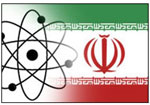 Chicago Tribune: The tighter trade sanctions recently imposed on Iran ought to be the ultimate test of whether economic pressure can be painful enough to force an undemocratic government to give up the quest for nuclear weapons. We say “ought to be” because this effort falls way short of an ultimate test. Chicago Tribune
Chicago Tribune: The tighter trade sanctions recently imposed on Iran ought to be the ultimate test of whether economic pressure can be painful enough to force an undemocratic government to give up the quest for nuclear weapons. We say “ought to be” because this effort falls way short of an ultimate test. Chicago Tribune
The dangers of a porous embargo of Iran
 The tighter trade sanctions recently imposed on Iran ought to be the ultimate test of whether economic pressure can be painful enough to force an undemocratic government to give up the quest for nuclear weapons. We say “ought to be” because this effort falls way short of an ultimate test. Too many countries just aren’t ready to make it a critical priority.
The tighter trade sanctions recently imposed on Iran ought to be the ultimate test of whether economic pressure can be painful enough to force an undemocratic government to give up the quest for nuclear weapons. We say “ought to be” because this effort falls way short of an ultimate test. Too many countries just aren’t ready to make it a critical priority.
The Obama administration has made much of its program to sap Tehran’s economic vitality, and it is an ambitious plan. The European Union has established an embargo on Iranian oil imports, and under a new U.S. law, foreign banks have to stop doing business with Iran’s central bank in order to maintain access to American financial institutions.
Iran has seen its oil exports drop to 1.5 million barrels a day, down from 2.5 million last year. “We’re going directly at their revenue and making it increasingly difficult for them to access that revenue,” Treasury Department official David S. Cohen told The New York Times.
But considerably less difficult than it could be. Not everyone is strongly resolved to punish the Iranian regime for its dangerous ambitions, and Washington has cut some countries a lot of slack. It has granted exemptions to no fewer than 20 nations that buy Iranian oil — including China, Japan and India, which are Iran’s three biggest customers. Ten members of the EU also qualified.
How did they manage to get a pass? The U.S. law permits such accommodation for countries that have “significantly reduced” their purchase of Iranian oil. And “significant,” as defined by the State Department, may be a synonym for “not much.”
Japan has cut its imports by no more than 22 percent and possibly less. China achieved a reduction of 25 percent in the first part of 2012, but only because of “an unrelated pricing dispute with Tehran,” notes Reuters — and since then, purchases have gone back up. So the Chinese have another six months to show they are cutting back.
The administration is not the real culprit here. It has done its best to mobilize world opinion and action against Iran but faced considerable reluctance in many quarters. The price for eliciting cooperation from Beijing and other governments has been not to demand too much from them. But the more porous the embargo, the less likely it will achieve its urgent purpose: convincing Tehran to abandon the drive for nuclear weapons.
If that fails, it’s not hard to predict what will happen next. Neither Israeli Prime Minister Benjamin Netanyahu nor President Barack Obama is willing to let Iran become a nuclear-armed menace. Absent an Iranian retreat, either Israel or the United States almost certainly will take forceful military action to destroy its nuclear facilities.
A full-scale war may erupt in the Persian Gulf and the Strait of Hormuz. The world’s supply of oil could be severely disrupted, and so could the world economy.
In that case, China and the other 19 countries will find they are anything but exempt from the nasty consequences. All the more reason for them to accept the far milder burden of acting strongly to solve the problem without war, while there is still time.


